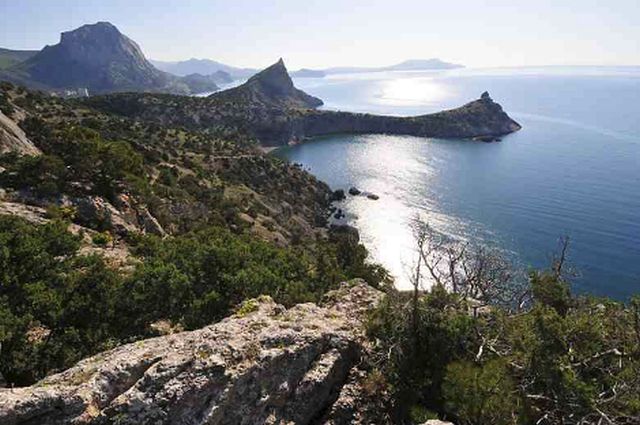Ferry Maxoutova (from Maxoutovakis) has recently lived and studied in Greece. Her family is in Crimea, at the epicentre of the Ukrainian crisis, and her mother lives and works in Moscow. Ferry is shocked by the events in her homeland, but also by how they are presented by Russian media, and not only. As she says, the place of Ukraine is in the European Union (EU) rather than in alliance with Moscow. The student who is studying international relations and strategy at Pantheion University openly speaks about the Russian invasion and occupation of Crimea, stressing that, today more than ever, Ukraine needs the help of the EU and NATO member states.

Ferry’s family lives in Sevastopol, where the Russian speaking population is 70%-80%. There are about 50,000 Greeks (or people of Greek origin) there too. Outraged by Putin’s argument that Russia is intervening in Crimea to defend the Russian population the student stresses that the Russians living in Crimea have never been threatened, to the contrary.
"None of my friends support the Russian invasion, because this is a real invasion, a brutal occupation of the territory of Ukraine by Russia, and a clear breach of the rules of international law," says Ferry.
The Greeks are afraid, on the one hand, but they are keeping their temper, not wanting to leave. The same is the opinion of her father, a retired military man who served in St. Petersburg.
Here the journalist of iefemerida.gr asks her whether all those military on the territory of the Crimean peninsula are local Russian-speaking military or if they are military from the Russian base in Sevastopol. Ferry is firm, "They are Russians, Russian military from Moscow, Cossacks and others."
As for the videos of the residents of Simferopol and Sevastopol, who say that they support the Russian intervention and the protection by "mother" Russia, she states that many families of military serving at the Russian port facilities have lived in these two cities for many years and it is logical for them to seek support from Moscow.
"This is Russian propaganda, this is one-sided information, they have gone so far as to say that the Ukrainians are provoking the Russians," the student is bewildered.
The Ukrainian army has refused to surrender their weapons, although some units have done so. Nevertheless, the majority of them have remained in their positions in Crimea. One spark is enough to ignite the whole region, she says, accounting for some specific incidents and provocations on the part of Russia.
The student is proud that Crimea is Ukraine and this cannot be changed, emphasizing the geopolitical importance of the region. Ferry admits that living in Crimea is like living in Greece, bearing in mind the beauty of the peninsula.

Yanukovych took away our last hope
As for the political situation in Ukraine and the removal of President Viktor Yanukovych, the student states once again that the place of her second country is in the EU, not in alliance with Moscow. "After the organization of Euro 2012 Ukraine had made a significant step towards Europe, then Yanukovych came and turned us back to the Soviet era. The very reason for the Orange Revolution was the convergence with the EU and Yanukovych took away our last hope," says Ferry.
As for tomorrow in Kiev, the student shares the expectation of the vast majority of Ukrainians: "We need a strong centrist government, but we also need the support and protection of Western countries and NATO." According to her, the people from the opposition who have come to the fore have a mix of experience and want to put the country back into the orbit of Europe. Yatsenyuk, Klitschko can work for their country and they should be allowed to do so.
It is unacceptable to call us neo-Nazis
What really angers the Ukrainian student of Greek origin is the statement that neo-Nazis have prevailed in Ukraine. "It is unacceptable to call us neo-Nazis. In Ukraine, the communists are dead, the right wing is extreme and it is a minority, therefore the progressive group that will rule is dominant," says Ferry.
She seems certain that one day Ukraine will join the EU. "We are a European country already; perhaps we are even more European than other European countries that are already members of the Union. What we want is institutional legitimacy. We want European salaries, public support and today more than ever we are ready to make a step towards the EU," repeats the student.